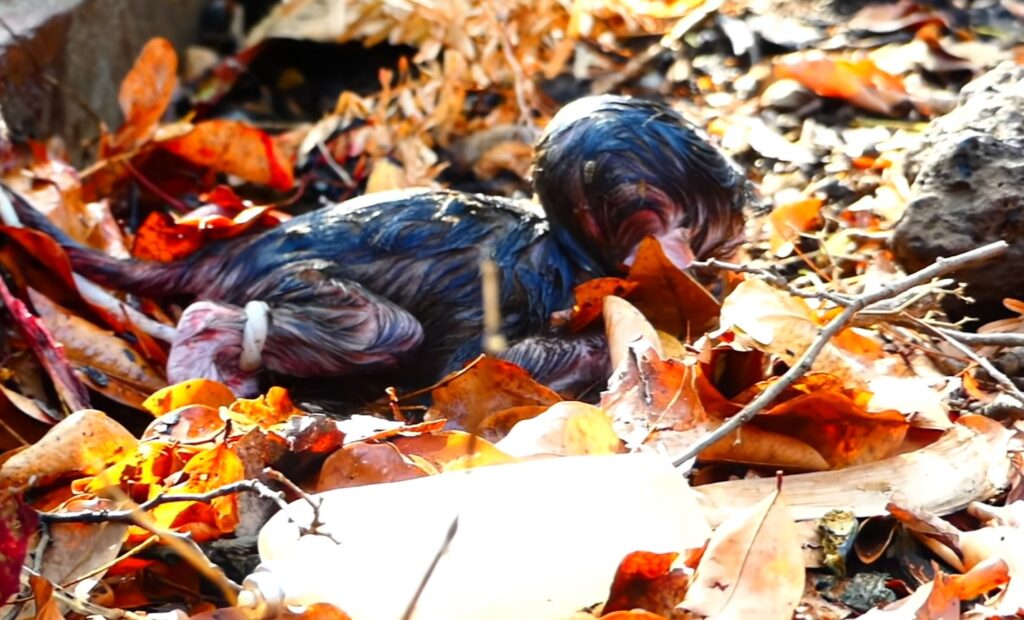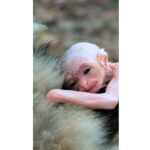In a heartbreaking and poignant moment captured in nature, a mother monkey has rejected her newborn baby just moments after giving birth, leaving many observers deeply saddened and reflective about the emotional complexities of the animal kingdom.
The scene unfolded in a forested area where a troop of monkeys was being observed by wildlife researchers and nature enthusiasts. The mother, a young female who had given birth for the first time, appeared disoriented and distressed after delivering her baby. Instead of cradling or nursing her infant, she turned away, leaving the fragile newborn lying helplessly on the ground.
Such behavior, while rare, is not entirely unheard of in the animal world. There are various reasons why a mother might reject her offspring. In some cases, it could be due to a perceived weakness or deformity in the newborn, prompting the mother to instinctively prioritize the survival of the troop. In other instances, the mother may be physically or emotionally unprepared for the responsibilities of motherhood, especially in the case of first-time mothers.
Animal behaviorists suggest that stress, trauma, or even the loss of a close troop member can affect a monkey’s maternal instincts. Just like humans, monkeys are deeply social creatures. Their emotional well-being is closely tied to their environment and social bonds. If a mother experiences anxiety or trauma around the time of birth, it can disrupt the bonding process with her newborn.
The rejected infant, meanwhile, struggles to survive without the warmth, milk, and protection of its mother. In some fortunate cases within primate groups, another female – often a relative – may step in to care for the abandoned baby, a behavior known as “allomothering.” However, in the wild, the chances of survival for a newborn without immediate maternal care are grim.
For many who witness or hear about these moments, it’s a sobering reminder that the emotional world of animals is rich, complex, and at times, deeply painful. The rejection of an infant by its mother can seem cruel to the human eye, but it often stems from instinctive responses that have developed over millennia of evolution.
This tragic incident also highlights the importance of conservation and proper observation practices. In some cases, human interference, habitat destruction, or exposure to unnatural stressors can contribute to abnormal animal behaviors. Ensuring that wild animals live in safe, undisturbed habitats plays a critical role in supporting natural behaviors, including maternal bonding.

Ultimately, the story of the mother monkey and her newborn is a stark and sorrowful glimpse into the emotional depth of primates. It’s a powerful reminder that just like us, animals experience joy, fear, confusion, and grief. And while the reasons for this particular mother’s actions may never be fully understood, the sadness surrounding the moment is universally felt.

